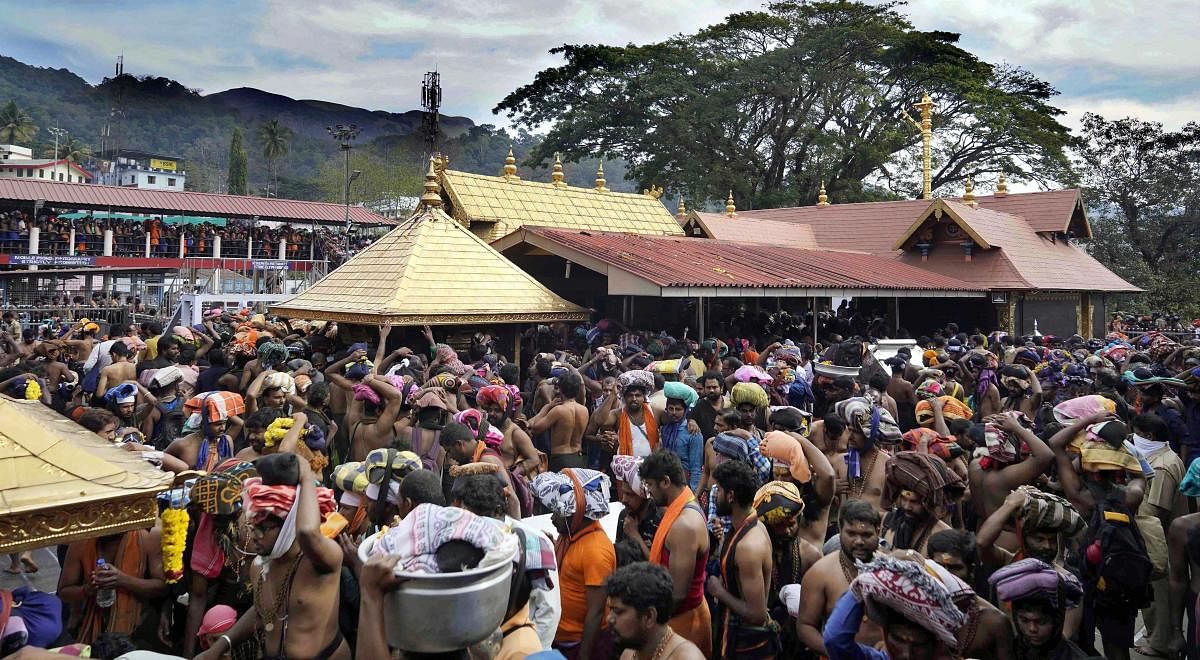
The Supreme Court on Wednesday reserved its verdict on as many as 64 petitions seeking reconsideration of the September 28 judgement that allowed entry of all women to Kerala's Sabarimala temple.
A five-judge Constitution bench presided over by Chief Justice Ranjan Gogoi closed hearing the arguments, wherein the Kerala government and Travancore Devasam Board strongly opposed the plea.
The Left Democratic Front government, led by senior advocate Jaydeep Gupta and Vijay Hansaria, said that no material has been placed before the court to support the contention for review of the judgement.
He said Article 25 on right to worship was affected by the rules disallowing women between 10 and 50 to temple, which is not a denominational one.
The Twitter thread:
The Kerala government also submitted that the disturbance of public peace cannot be a ground for review of a judgement, passed on the constitutional principles.
It also maintained that the Sabarimala temple is a public temple, open to all sans discrimination and subject to the provisions of the Kerala law.
The Travancore Devasam Board, which managed the temple, changed its stand before the court and supported the judgement on the entry women of menstrual age.
Senior advocate Rakesh Dwivedi, appearing for the board, said it has changed its position and now respects the judgement.
He said so after having been asked by Justice Indu Malhotra, who dissented with majority judgement on entry of women.
Earlier, senior advocates K Parasaran, V Giri, Mohan Parasaran, B V Acharya, appearing for various parties, urged the top court to review its judgment.
Parasaran focused on the interplay of preamble and Articles 15, 17 and 25 of Constitution.
He said the failure to discuss Article 15 was error apparent. It threw open all public institutions of secular character to the general public but not religious institutions, he said.
Dwivedi, for his part, said any position which denied equal rights to women would fall foul of the Constitution.
"The purity of biological attributes must be identified. Today we have to transform society and should include women. Our Constitution makers have recognised equality as the core, it is everywhere from preamble to Arts 14, 15 and 25(1)," he said.
Indira Jaising, appearing for two women Bindu and Kanak Durga who entered the Sabarimala temple, said that they were facing social exclusion. One was beaten up by her own mother in law.
"The core of judgement is based on discrimination seen in the practice. The Constitution protects freedom of conscience which allows a woman to enter any temple," Jaising said, adding a woman should be allowed to worship in accordance with her conscience.
"It is derogatory and hurts when women are prohibited on ground of purity," she said.
The basic feature of the Indian Constitution is gender justice, she pointed out seeking a mandamus not to restrain women when the Sabarimala temple would be opened on February 12.
